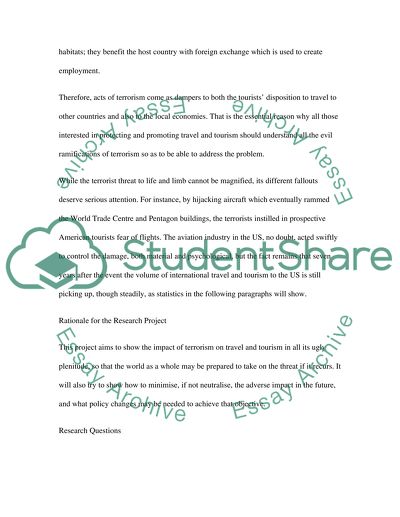Cite this document
(“Research project topic: Impacts of terrorism on International travel Essay”, n.d.)
Retrieved from https://studentshare.org/tourism/1525638-research-project-topic-impacts-of-terrorism-on-international-travel-and-tourismcase-study-of-911
Retrieved from https://studentshare.org/tourism/1525638-research-project-topic-impacts-of-terrorism-on-international-travel-and-tourismcase-study-of-911
(Research Project Topic: Impacts of Terrorism on International Travel Essay)
https://studentshare.org/tourism/1525638-research-project-topic-impacts-of-terrorism-on-international-travel-and-tourismcase-study-of-911.
https://studentshare.org/tourism/1525638-research-project-topic-impacts-of-terrorism-on-international-travel-and-tourismcase-study-of-911.
“Research Project Topic: Impacts of Terrorism on International Travel Essay”, n.d. https://studentshare.org/tourism/1525638-research-project-topic-impacts-of-terrorism-on-international-travel-and-tourismcase-study-of-911.


